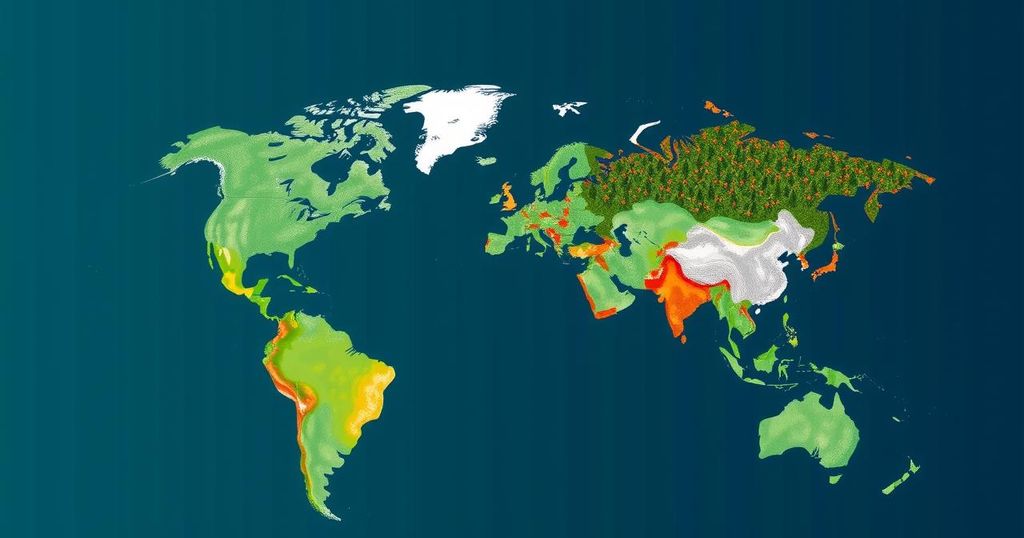Foreign Officials Advocate for Solidarity Levies to Fund Climate Initiatives
Foreign officials at the UN climate summit advocate for solidarity levies aimed at raising funds for green energy projects in developing nations, ahead of President Trump’s potential return to power. Targeting industries like shipping and aviation, the plan seeks to secure at least $100 billion annually for climate initiatives. The funding’s destination raises questions, as it may support the shipping sector’s decarbonization efforts rather than directly aid poorer countries.
Foreign officials convening at the UN climate change summit are advocating for the establishment of global climate taxes, termed “solidarity levies,” aimed at financing green energy initiatives in developing countries. This proposal emerges as the United States prepares for the potential return of President Donald Trump, who has previously expressed opposition to financial commitments towards climate change under international agreements. Participating nations, including France, Spain, and Kenya, are seeking to create a comprehensive plan that could raise substantial funds to support climate efforts, anticipating a more developed framework for discussion in Brazil next year.
The proposed levies would likely target the shipping and aviation sectors, among other industries, with the goal of generating at least $100 billion annually to aid impoverished nations in addressing climate-related challenges. Given the contentious history surrounding financial support for climate initiatives, officials are exploring various avenues for funding, including potential levies on cryptocurrency transactions, fossil fuel production, and financial trades.
Despite the ambitious goals, there remains uncertainty regarding the ultimate allocation of the revenue from these levies, with some officials suggesting that funds may initially benefit the shipping industry for its decarbonization efforts rather than directly aiding developing nations. The urgency of these discussions underscores the challenges faced by the aviation sector, which is under pressure from environmental advocates and regulatory bodies to reduce its carbon footprint while navigating the financial implications of such obligations.
The concept of solidarity levies gains traction against a backdrop of previous attempts at climate finance that have encountered significant hurdles. A recent study highlighted the considerable greenhouse gas emissions generated by high-profile global events such as the UN climate summits, calling attention to the role of travel, particularly via private jet, in exacerbating the climate crisis.
At present, discussions surrounding climate finance are becoming increasingly relevant as global leaders continue to grapple with the impacts of climate change. The UN climate change summit serves as a platform for international cooperation in seeking solutions to financial disparities between developed and developing nations. The notion of solidarity levies presents an innovative approach toward addressing financial inequalities, proposing a training ground for collaborative policies that could lead to effective global funding for green projects. Furthermore, the anticipated return of a US administration with contrasting views on climate finance highlights the urgency for developing mechanisms that can withstand political fluctuations and foster sustainable development.
In conclusion, the push for solidarity levies at the UN climate change summit signifies a critical effort by foreign officials to address financing for climate initiatives amidst a challenging political landscape. By targeting industries such as shipping and aviation, the proposed taxation offers a potential means to generate substantial funding to support developing nations in their climate endeavors. Nevertheless, the complexity surrounding these funding streams and destination of revenues poses ongoing challenges that stakeholders must navigate carefully. The ability to forge a consensus on these issues will be crucial in determining the efficacy and impact of such financial strategies in combating climate change for future generations.
Original Source: www.shorenewsnetwork.com




Post Comment